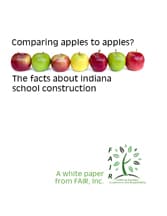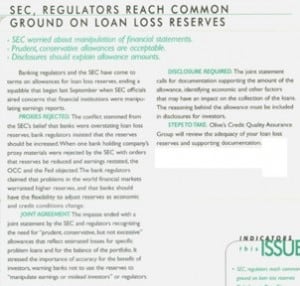Think schools cost too much money to build? Several Indiana state legislators and the state’s governor do, and have made attempts at cutting the cost a primary part of their agenda. A trade group of architects, contractors, engineers, and others called FAIR disagree, pointing to independent sources that show school costs in the state are far from excessive.
But when the advocates for cutting costs occupy the bully pulpit of majority leadership, it can be tough for opponents to make their voices heard. Many in the media were repeating the legislators’ claims as though they were facts. Unfortunately, the story is a complicated, multi-faceted one. How could FAIR get accurate, understandable information in the hands of media, legislators, and other key stakeholders?



